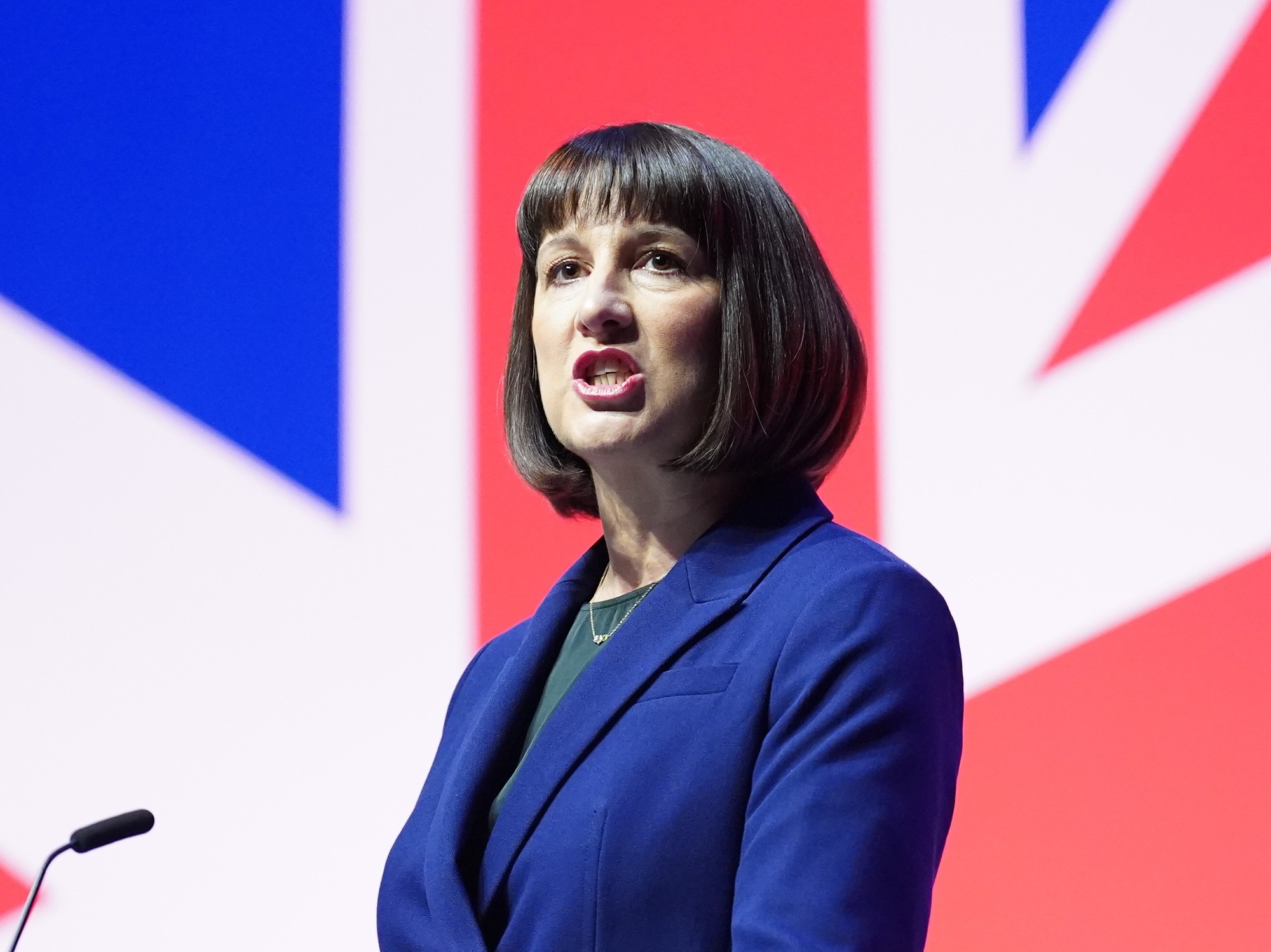Miriam Cates was the Conservative MP for Penistone and Stocksbridge from 2019 to 2024.
Don't Miss
Most Read
Trending on GB News
This week it was announced that Vauxhall is to close its van manufacturing plant in Luton with over 1,000 jobs set to be lost.
Sadly, this announcement is just another milestone in Britain’s tragic journey of industrial decline.
As recently as the 1990s, the UK was producing around 2 million vehicles every year yet this figure has now halved.
Like other British manufacturers, car producers have been squeezed by a combination of uniquely high commercial energy prices, competition from China and disinterest from successive governments.
But in the case of the Luton plant closure, there is an additional factor at play. Vauxhall owner Stellantis has blamed the Government’s Zero Emission Vehicle (ZEV) mandate for the decision to end its van manufacturing operation in the UK.
This ZEV mandate initially banned the sale of new petrol and diesel cars from 2030, but this deadline was extended to 2035 by Prime Minister Rishi Sunak last year.
But the legislation does not just ban sales of internal combustion engine (ICE) vehicles in the future, it also introduced legally enforceable sales targets from January this year.
In 2024, the ZEV mandate requires 22 per cent of all car sales to be electric models. This figure increases to 28 per cent in 2025, 33 per cent in 2026 etc, finally reaching 100 per cent by 2035.
For vehicle manufacturers that fail to meet this target the consequences are severe; they face an eye-watering £15,000 fine for each ICE vehicle sold above the allowed limit.
There has been a steady rise in EV adoption in recent years but sales growth has now stalled and, just eleven months in, it is evident that the ZEV targets will not be met.
Despite vehicle manufacturers - and the government - offering serious incentives to customers to purchase EVs, sales this year have fallen with Electric Vehicles (EVs) accounting for just 18.7 per cent of car sales in 2024, well below the 22 per cent legal requirement.
It is increasingly clear that the Government is pursuing this arbitrary EV sales target against the preference of the majority of the public.
While some motorists are clearly satisfied with their electric cars, others do not want to purchase an EV for a wide variety of reasons.
Many have ‘range anxiety’, where they rightly worry about the battery running out of charge and being unable to locate a charger.
Some are put off by the amount of time taken to charge EVs at motorway service stations - at busy periods, some drivers have reported queueing for over 40 minutes for a charging station before taking another 20 mins to charge their car.
Compare this lost hour with the three or four minutes required to fill up with petrol and it’s clear that EVs are not an efficient option for high mileage drivers.
Then there are millions of homes in the UK where outdoor car chargers cannot be fitted for practical reasons, for example blocks of flats and terraced properties with no off-road parking spaces.
Electric vehicles are generally more expensive to insure and with the costs of electricity far higher than before, EVs are no longer necessarily cheaper to run than their combustion engine equivalents.
Perhaps unsurprisingly, five out of six EV sales this year were to car fleets; just one in six was bought by a private owner.
Against this background, car manufacturers are struggling. But these corporate woes should concern consumers too, because sooner or later the ZEV mandate is going to make driving unaffordable for all but the wealthy, and out of reach for those who most need a car.
No vehicle manufacturer is going to pay a £15,000 fine for each petrol or diesel car sold over the legal limit.
Instead the industry will just withdraw low- and middle-priced ICE cars from the market, reducing supply and pushing up prices. Crucially, this will increase demand on second-hand combustion cars, making them less and less affordable.

Miriam Cates appearing on GB News
GB NewsLet's be clear about the consequences of this. Many British peoples’ lives depend on owning a car.
In rural areas particularly, it is impossible for residents to get to work, training, healthcare and education without the use of a private vehicle.
In the constituency I used to represent, many villages were served by just one or two buses a day. For young people especially, access to a car is essential and the second hand car market is vital to enable this.
I bought my first car in 2007 for £600, just over a week’s wage as a newly qualified teacher. Without that car - a slightly tatty but perfectly serviceable high mileage Renault Clio - I simply could not have got to work.
Yet there is almost no equivalent car available at that price point in 2024; the second hand car market has already been severely distorted.
Most of us accept that government regulations have done much to improve air quality in the UK. Few would want to return to the era of ‘smog’ where industries were allowed to pollute the atmosphere without penalty.
But while it is unequivocally a good thing to stop factories pumping out harmful substances, the forced shift to electric vehicles is a much less clear cut case.
In Britain, we have already reduced our carbon emissions by half since the 1990s. Modern ICEs produce a fraction of the noxious gases emitted by older models thanks to technological improvements (and government mandates).
Electric Vehicles may have some environmental advantages - they emit no fumes while driving - but producing an EV leaves double the carbon footprint of manufacturing a traditional car.
Some of the metals required for EV batteries are obtained through exploitation; cobalt miners in the Democratic Republic of Congo work for as little as 30p an hour in appallingly dangerous conditions.
Electric vehicle batteries deteriorate far more rapidly than ICE engines, and EVs are much heavier than combustion cars, perhaps partially accounting for the parlous state of residential road surfaces.
We should also not discount the influence of China in the EV market; in 2023, 438,000 Chinese electric vehicles were imported into Europe. Every EV is connected to the internet, opening up the potential for sabotage.
LATEST MEMBERSHIP OPINION:
Climate change is of course a concern, but it is far from clear that a wholesale switch to electric vehicles will make any significant difference to overall emissions.
Even if it did, we must weigh the environmental benefits against the very real costs to ordinary people and British industry. We can mitigate against rising temperatures but not self-inflicted poverty.
It is deeply ironic that the UK’s ZEV mandate could not have been enacted had we remained in the European Union.
The EU, for all its faults, has taken a far more pragmatic and less radical approach to encouraging the sale of EVs.
Instead of taking the opportunity to reduce distorting regulations post Brexit, the last Government doubled down on costly and arbitrary environmental targets that now threaten to deal a fatal blow to our struggling car industry.
Let’s hope the new Labour government is willing to listen to the concerns of manufacturers and roll back on - perhaps even scrap - the ZEV requirements.
More importantly, the Government must consider the impact on ordinary workers - especially the young - who depend on access to affordable second hand vehicles.
Driving should not become the preserve of the wealthy.








